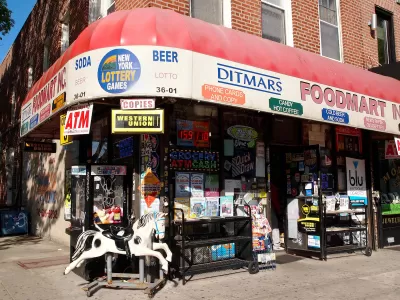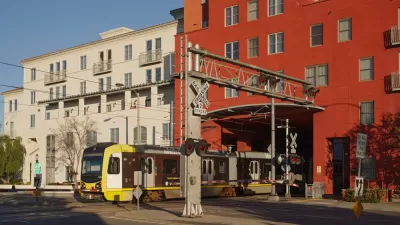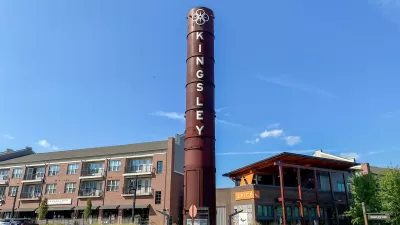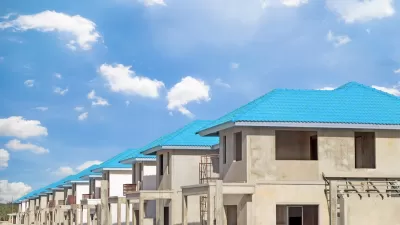‘Accessory commercial units’ were once common across U.S. towns and cities. Now, zoning regulations make them illegal in many places.

An article by Dave Olverson in Strong Towns describes the rise and fall—and potential renewed rise—of neighborhood grocery stores, otherwise known as corner stores, bodegas, or, in trendy planning parlance, “accessory commercial units” or ACUs.
Like their residential partner accessory dwelling units (ADUs), ACUs are the latest iteration of a planning trend that revives an old idea that was made illegal or impractical by modern zoning regulations.
“Beyond issues of equity, neighborhood shops that existed decades ago provided another benefit, one that a sterile term like ‘commercial unit’ doesn’t capture. Those business owners were an important part of the community.” Regardless of the terminology, Olverson hopes small neighborhood stores will be legalized in more places.
Olverson points out that bringing back more corner stores could make food and other essential items more accessible, particularly in neighborhoods lacking major grocery stores, reduce the need for driving, and provide opportunities for social interactions.
FULL STORY: The Death of the Neighborhood Grocery Store

Manufactured Crisis: Losing the Nation’s Largest Source of Unsubsidized Affordable Housing
Manufactured housing communities have long been an affordable housing option for millions of people living in the U.S., but that affordability is disappearing rapidly. How did we get here?

Americans May Be Stuck — But Why?
Americans are moving a lot less than they once did, and that is a problem. While Yoni Applebaum, in his highly-publicized article Stuck, gets the reasons badly wrong, it's still important to ask: why are we moving so much less than before?

Research Shows More Roads = More Driving
A national study shows, once again, that increasing road supply induces additional vehicle travel, particularly over the long run.

Judge Halts Enforcement of Anti-Homeless Laws in Grants Pass
The Oregon city will be barred from enforcing two ordinances that prosecute unhoused residents until it increases capacity and accessibility at designated camping sites.

Advancing Sustainability in Los Angeles County Schools
The Los Angeles County Office of Education’s Green Schools Symposium brings together educators, students, and experts to advance sustainability in schools through innovative design, climate resilience strategies, and collaborative learning.

Using Old Oil and Gas Wells for Green Energy Storage
Penn State researchers have found that repurposing abandoned oil and gas wells for geothermal-assisted compressed-air energy storage can boost efficiency, reduce environmental risks, and support clean energy and job transitions.
Urban Design for Planners 1: Software Tools
This six-course series explores essential urban design concepts using open source software and equips planners with the tools they need to participate fully in the urban design process.
Planning for Universal Design
Learn the tools for implementing Universal Design in planning regulations.
City of Moreno Valley
Institute for Housing and Urban Development Studies (IHS)
City of Grandview
Harvard GSD Executive Education
NYU Wagner Graduate School of Public Service
City of Cambridge, Maryland
Newport County Development Council: Connect Greater Newport





























